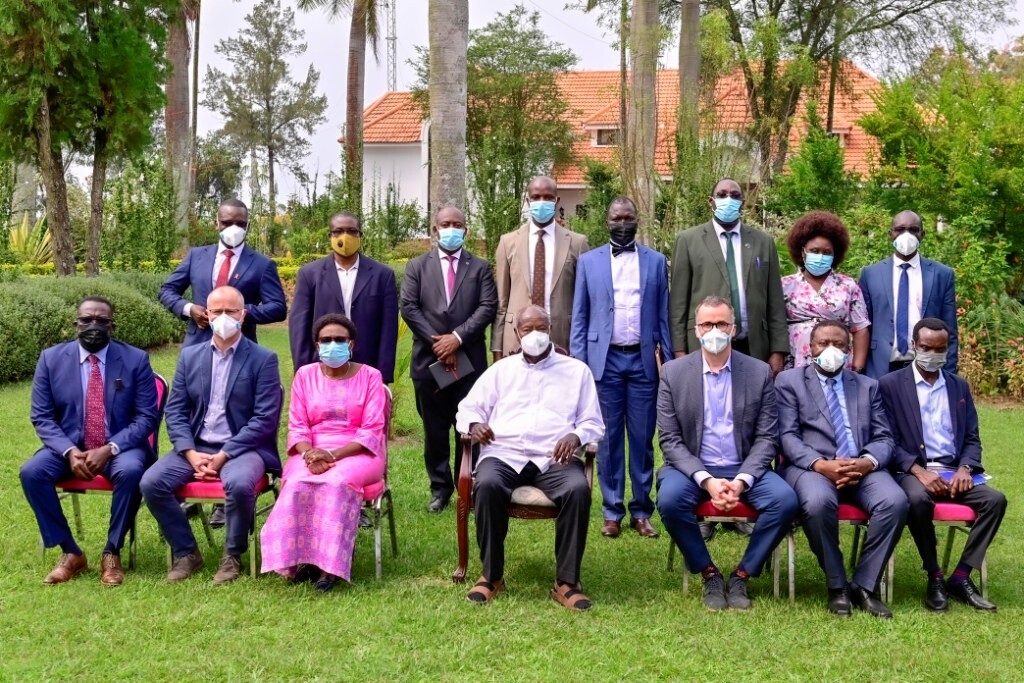Oxitec, a British firm which developed a technique for inserting a lethal gene into mosquitoes, is set to partner with Uganda Virus Research Institute (UVRI) to combat malaria in the East African country.
This was revealed on Tuesday during a meeting between President Museveni and Oxitec Chief Executive Officer, Grey Frandsen in Rwakitura, Kiruhura District.
President Museveni welcomed Oxitec to Uganda and supported their idea of partnering with UVRI to join efforts in fighting malaria in the country.
He pledged to “offer all the necessary support to the institution to come up with a solution to fight the life-threatening disease.”
Oxitec’s gene modification technique operates in a way that after mating, the transferred gene gets passed to the offspring of the mosquito, which dies before reaching adulthood.
The company has used the technology in Brazil since 2011, and has been exploring projects in Panama, Djibouti, and the Marshall Islands.
Gene
In 2020, Oxitec was approved by the U.S. Environmental Protection Agency (EPA) and the Florida Department of Agriculture and Consumer Services to release mosquitoes with the “self-limiting gene” in Florida and Texas.
According to media reports, despite successful trials in Mexico and Brazil, the company’s mosquito release in the Florida Keys met resistance from groups opposed to genetically modified organisms.
More than 150,000 residents petitioned the Food and Drug Administration to stop the project, but the agency ruled that the mosquitoes would not have any significant impact and the Oxitec release began in spring of 2021. Oxitec responded to protests with a public education campaign.
In Rwakitura, Grey informed President Museveni that the Anopheles funestus is a major malaria vector in Sub-Saharan Africa.
He added that there is no static solution for this vector, yet it is critical in cyclic transmission year-round, and so it needs immediate attention.
Mr. Grey further noted that Oxitec seeks to partner in a unique public private partnership with the Government of Uganda, and it will be the first of its kind in Africa.
Uganda has been experiencing a new burden of malaria since January 2022 with cases rising higher by the end of the year. At its peak, more than 300,000 cases were reported every week.
According to the World Health Organisation, Uganda has the world’s highest malaria incidence rate of 478 cases per 1,000 population per year.
It is also the leading cause of sickness and death in Uganda and is responsible for up to 40 percent of all outpatient visits, 25 percent of hospital admissions and 14 percent of all hospital deaths.
The malaria death rate in Uganda is estimated to be between 70,000 and 100,000 deaths per year; a toll that exceeds that of HIV/AIDS.
The average economic loss in Uganda due to malaria annually is over $500 million.
The Rwakitura meeting was also attended by the Minister of Health, Dr. Jane Ruth Aceng, Prof. Pontiano Kaleebu , the Director- UVRI, Dr. Joseph Okware, the Director Health Services in the Ministry of Health, among others.
Do you have a story or an opinion to share? Email us on: dailyexpressug@gmail.com Or follow the Daily Express on X Platform or WhatsApp for the latest updates.

